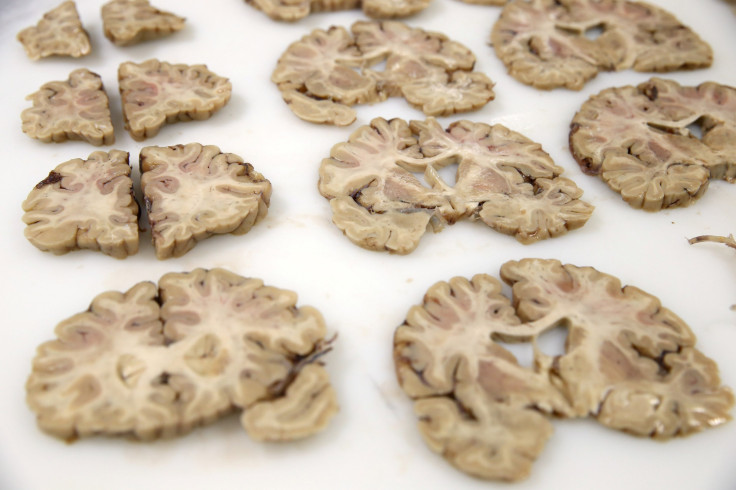Overweight Side Effects Consist Of Aging Brain 10 Years, Study Says

A team of researchers at University of Cambridge and Yale University have found that being overweight can age your brain by an extra 10 years.
The human brain is made up of two types of matter: white matter and grey matter. The latter is primarily made up of cell bodies and is responsible for many day-to-day functions like muscle control, sensory perception and decision making. The former, on the other hand, is made up of nerve fibers that connect grey matter together and are responsible for transmitting information. The amount of white matter varies throughout an individual’s lifetime with a spike during youth and a decline as a person ages.
The team, who published their findings in the journal Neurobiology of Aging, followed 473 subjects between the ages of 20 and 87 and split them into a “lean” group and an “overweight” group based on their BMI. By looking at weight and measuring their white matter through MRI scans—and taking variables like gender and self-reported health issues into account—the researchers found those with extra pounds had less white matter than their leaner peers.
“The overall message is that brains basically appear to be 10 years older if you are overweight or obese,” said Lisa Ronan, first author of the study from the University of Cambridge.
This variance was only seen in participants over the age of 37. This suggests, say the researchers, that the brain may be extra vulnerable during this window of aging since this is when white matter naturally starts to decline. The biggest difference in white matter was seen around the age of 40.
The silver lining; however, is that an impact on cognitive abilities was not found. When subjects were tested for knowledge and understanding, there was no difference in performance.
“While cognition does change in the general population as you age, that is just perfectly normal; there were no differences in these changes between lean and overweight or obese [people],” Ronan said to The Guardian.
Ronan points out that the cross-sectional study does not prove that BMI alone is the culprit for the extra decline in white matter.
“It could be that the genes that are responsible for obesity could also be responsible for smaller brains, or it could be that if you have a brain change that could lead to overeating,” she said.
As such, the next step is further research to confirm the role of BMI, to see how weight and dementia correlate, and to learn whether weight loss reverses the effect.
"This must be a starting point for us to explore in more depth the effects of weight, diet and exercise on the brain and memory,” said Sadal Farooqui, an author of the study from Cambridge University, to the BBC.
© Copyright IBTimes 2025. All rights reserved.






















